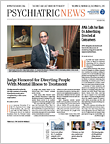In September the Brady Center to Prevent Gun Violence released the report “The Truth About Suicide and Guns.” It noted that approximately two-thirds of all yearly gun deaths in the United States are firearm suicides. For those familiar with the prevalence of suicide in the United States, these numbers are not news. The news is that organizations interested in reducing the tremendous toll of gun violence have begun to recognize that the largest single category of firearm mortality, by far, is suicide.
Suicide is the 10th leading cause of death in the United States and second leading cause of death among teens and young adults, according to the Centers for Disease Control and Prevention. In 2013, suicide claimed the lives of 41,149 people; over 50 percent (21,175) were firearm suicides. The presence of firearms in a home is associated with a two to 10 times greater risk of suicide compared with homes without firearms. This risk applies to the gun owners, their spouses, and their children; persists for years after the purchase of the firearms; and is independent of psychopathology of household members.
Only two interventions have been demonstrated to be effective in decreasing suicide mortality: physician education in suicide risk assessment and restriction of lethal means. Unfortunately, most mental health and primary care clinicians are not well trained in conducting suicide risk assessments generally, and more specifically, lack training and skills in regard to assessing and managing risk of firearm suicide. Clinicians need to develop skills to assess and safely manage the increased risk of suicide presented by access to firearms.
Routine psychiatric evaluation should include inquiries regarding access to firearms in the home—whether they belong to the patient or not. Teens who use firearms to kill themselves typically use guns owned by adult family members.
Counseling on the elevated risks associated with firearms in the home and safe firearm storage practices should be provided. The longer it takes to access a loaded firearm, the lower the risk associated with firearms in the home. Lowest risk is associated with storing firearms and ammunition separately and under lock. Highest risk is associated with access to unlocked and loaded firearms.
Even if stored safely, the presence of a firearm in the home is absolutely contraindicated for an individual in acute psychiatric crisis, especially if alcohol use or abuse is present. Mental health professionals should work collaboratively with high-risk patients and their families to remove firearms from the immediate environment, even if only temporarily. Interventions that reduce immediate access to firearms during a time of crisis can make the difference between life and death. ■
“The Truth About Suicide and Guns” can be accessed
here.

